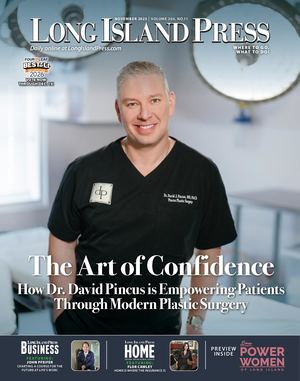“Judge Not”
It’s always a good idea to refrain from being judgmental because you just may be condemning yourself. “Judge not lest ye be judged” is a timeless injunction of the Good Book. In his classic work, Mere Christianity,” C.S. Lewis has an interesting take on that Biblical admonition. Lewis says that before our lives are judged, we shall be granted the gift of omniscience about ourselves to see how we would have acted or behaved in every circumstance. The truth is we just don’t know how we would act or even feel in other situations and other circumstances.
For example, most of us consider ourselves patriotic Americans. But would that have been true in 1776? More than 20 percent of the American population back then sided with Great Britain. They were called Loyalists and the governor of New Jersey, William Franklin, son of Benjamin Franklin, was one of them. The rift between father and son never healed. For more than a century and a half, the Crown protected colonists from the French and the Indians. Were we now going to sever this mutually beneficial relationship over a few taxes on tea, newspapers and almanacs? Moreover, who among us would have risked defying the greatest Empire on Earth? That would be treason and those who commit treason often end up with a stretched neck.
We’re pretty comfortable in 21st-century America and it’s easy to play armchair general. In the 18th century, however, fighting the British army in the field of arms was an unpleasant proposition. That’s not to say that’s true of everyone. John Hancock was certainly comfortable; the richest man in Boston, but the insult of taxation without representation was a burr under his saddle. He hated the idea of taxation. Wielding a pen as if it were a saber, he wrote his name in great, flowing and ostentatious letters. It’s the first signature on The Declaration of Independence. There’s a reason why people say put your “John Hancock” here when they want your signature. His was big, bold and brimming with defiance.
Old John boasted that he wanted King George III to be able to read his name without putting on his spectacles. When it came to trouble, Hancock’s credit was always good. When British troops were sent to Lexington (where the first blood of the American Revolution was shed) they were looking for Hancock and his derring-do partner Samuel Adams. Would any one of us today be so daringly provocative and spend our days and nights traipsing around the countryside trying to elude a whole army who would like nothing better than to string us up as a trophy for the King? The spirit of patriotism, except in the most resolute, can wan under such duress.
The same goes for our moral opprobrium over slavery. It’s easy to condemn those slave drivers who scarred the American experiment and betrayed our nations highest ideals and aspirations. But would we have the same sentiments if we had been a Southern physiocrat born into a world where human bondage seemed as natural an institution as marriage? Be careful how you answer that. There is perhaps no influence as sweeping and definitively defining as culture. It’s the reason why there are so few religious converts.
But changing circumstances can change minds. I saw this even in the domestic arena. Before I was married, I lived in an apartment that was unfurnished, bare and bereft of either style or elegance. I might as well have just lived in a cave with a television set. It was fine with me. A well-turned phrase gave far greater satisfaction than a well-manicured home. My wife, Sonia, is just the opposite; her tastes are smart, chic and tend toward the opulent. She looked at the plain, modest house we bought the way Professor Henry Higgins looked at Eliza Doolittle, the bedraggled Cockney flower girl, and saw it as an object to be polished and embellished with a veneer of gentility and glamour.
My cheapened, coarse sensibilities were rebuked by a flourish of refinement and good taste. I may have won the fair lady’s heart, but I was the one who was conquered. Just like the primitive Germanic tribes who overran the Roman Empire in late antiquity, but then gradually felt compelled to adopt the culture of those they vanquished, I surrendered to the charms and inducement of the better bred. While still no interior decorator, Sonia had inculcated into my disordered life an appreciation of domestic artistry. And, like the Visigoths encountering the glories of Roman civilization, I was better off because of it.
Recently, two academicians studied public attitudes regarding the three winning ticket holders in the March 30 Mega Millions lottery splitting $656 million, which translates into nearly $219 million apiece. Polls consistently show that the public favors raising taxes on rich millionaires as well as families making over $250,000. Presently, the top rate is over 35 percent. It’s a populist argument and a politically safe one since most people or families in the U.S. are not rich millionaires or have a quarter of a million income. But when the question is what the top rate should be for Mega Lottery winners, more than half of all Americans believe the rate should be 10 percent or less. Interestingly, Democratic respondents only favored a 3 percent higher rate than Republicans.
This new liberality, mind you, is for a bizarre windfall and not for monies earned by the dint of hard work or smart investments. It’s purely a product of good fortune or dumb luck. When people put their name in the pot (many millions bought tickets) they want to keep the gold they strike, whether they earned it or not. This is exactly the case of the three Mega-Millionaire winners. Their previous notions about rich millionaires being steeply taxed have undergone a change of heart. Like me, there was something about their new environs that wasn’t entirely unpleasing. I guess you can say that they spoke or, rather, judged too soon.

































